第56章 VALUES IN LIBRARY WORK WITH CHILDREN(2)
But when one has selected with satisfaction perhaps a hundred and fifty titles,one begins to get into the potboiler class--the written-to-order information book which may be guaranteed to kill all future interest in a subject treated in style so wooden and lifeless;the retold classic in which every semblance to the spirit of the original is lost,and the reading of which will give to the child that familiarity which will breed contempt for the work itself;the atrocious picture book modeled after the comic supplement and telling in hideous daubs of color and caricature of line the tale of the practical joker who torments animals,mocks at physical deformities,plays tricks on parents,teases the newlywed,ridicules good manners,whose whole aim,in short,is to provoke guffaws of laughter at the expense of someone's hurt body or spirit.There will be collections of folk and fairy tales,raked together without discrimination from the literature of people among whom trickery and cunning are the most admired qualities;there will be school stories in which the masters and studious boys grovel at the feet of the football hero;in greater number than the above will be the stories written in series on thoroughly up-to-date subjects.
I shall be much surprised if we do not learn this fall that the world has been deceived in supposing that to Amundsen and Scott belong the honor of finding the South Pole,or to Gen.Goethals the credit of engineering the Panama Canal.If we do not discover that some young Frank or Jack or Bill was the brains behind these achievements,I shall wonder what has become of the ingenuity of the plotter of the series stories--the "plotter"I say advisedly,for it is a known fact that many of these stories are first outlined by a writer whose name makes books sell,the outlines then being filled in by a company of underlings who literally write to order.When we learn,also,that an author who writes admirable stories,in which special emphasis is laid upon fair play and a sense of honor,is at the same time writing under another name books he is ashamed to acknowledge,we are not surprised at the low grade of the resulting stories.
With the above extremes of good and poor there will be quantities on the border line,books not distinctly harmful from one standpoint--in fact,they will busily preach honesty and pluck and refinement,etc.,but they will be so lacking in imagination and power,in the positive qualities that go to make a fine book,that they cannot be called wholly harmless,since that which crowds out a better thing is harmful,at least to the extent that it usurps the room of the good.
These books we will be urged to buy in large duplicate,and when we,holding to the ideal of the library as an educational force,refuse to supply this intellectual pap,well-to-do parents may be counted upon to present the same in quantities sufficient to weaken the mental digestion of their offspring beyond cure by teachers the most gifted.
There are two principal arguments--so-called--hurled at every librarian who tries to maintain a high standard of book selection.One is the "I read them when I was a child and they did me no harm"claim;the other,based upon the doggedly clung-to notion that our ideal of manhood is a grown-up Fauntleroy,infers that every book rejected was offensive to the children's librarian because of qualities dangerously likely to encourage the boy in a taste for bloodshed and dirty hands.
Now,in this day when parents are frantically protecting their children from the deadly house fly,the mosquito,the common drinking cup and towel;when milk must be sterilized and water boiled and adenoids removed;when the young father solemnly bows to the dictum that he mustn't rock nor trot his own baby--isn't it really matter for the joke column to hear the "did me no harm"idea advanced as an argument?And yet it is so offered by the same individual who,though he has survived a boyhood of mosquito bites and school drinking cups,refuses to allow his child to risk what he now knows to be a possible carrier of disease.
The "what was good enough for me is good enough for my children"idea,if soberly treated as an argument in other matters of life,would mean death to all progress,and it is no more to be treated seriously as a reason for buying poor juvenile books than a contention for the fetich doctor versus the modern surgeon,or for the return to the foot messenger in place of electrical communication.
It would be tactless,if not positively dangerous,if we children's librarians openly expressed our views when certain people point boastfully to themselves as shining products of mediocre story book childhoods.So I would hastily suppress this thought,and instead remind these people that,as a vigorous child is immune from disease germs which attack a delicate one,so unquestionably have thousands of mental and moral weaklings been retarded from their best development by books that left no mark on healthy children.In spite of the probability that there are to-day alive many able-bodied men who cut their first teeth on pickles and pork chops,we do not question society's duty to disseminate proper ideas on the care and feeding of children.
Isn't it about time that we nailed down the lid of the coffin on the "did me no harm"argument and buried the same in the depths of the sea?
Another notion that dies hard is one assuming that,since the children's librarian is a woman,prone to turn white about the gills at the sight of blood--or a mouse--she can not possibly enter into the feelings of the ancestral barbarian surviving in the young human breast,but must try to hasten the child's development to twentieth century civilization by eliminating the elemental and savage from his story books.